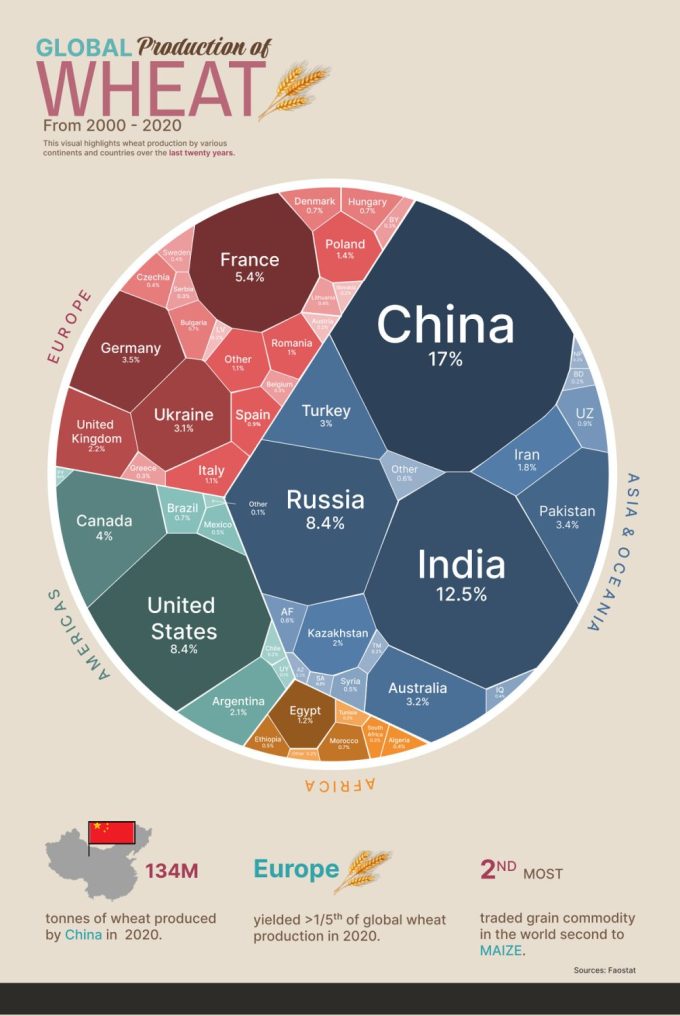Wheat is a type of cereal grain that has been an important staple food for thousands of years. It is a good source of nutrients and is used to make a wide variety of food products, including bread, pasta, pastries, and cereals. wheat is the third most-produced cereal worldwide, and the second-most-produced for human consumption. It is a key crop in out global food system, any impact on major production such as the recent war in Ukrainian or droughts, or other events, can impact the entire world.
Wheat is a rich source of carbohydrates, which are an important source of energy for the body. It is also a good source of dietary fiber, which can help to support digestive health and may help to reduce the risk of certain chronic diseases it is also a good source of nutrients, and a good source of dietary fibre, which can help to support digestive health and may help to reduce the risk of certain chronic diseases.
Wheat is also a great source of a number of essential nutrients, including for following:
B vitamins: Wheat is a rich source of B vitamins, including thiamin, riboflavin, niacin, and folate. These vitamins are important for a number of functions in the body, including energy production, nerve function, and immune system health.
Iron: Wheat is a good source of iron, which is an essential mineral that is necessary for the production of red blood cells and the transport of oxygen throughout the body.
Magnesium: Wheat is a good source of magnesium, which is an essential mineral that is involved in over 300 enzymatic reactions in the body. Magnesium is important for bone health, muscle function, and energy production.
Zinc: Wheat is a good source of zinc, which is an essential mineral that is important for immune system function, wound healing, and taste and smell.
Wheat is also a good source of other nutrients, including protein, selenium, and phosphorus.
It’s important to note that the nutritional content of wheat can vary depending on the specific type of wheat and the method of processing. For example, whole grain wheat is generally considered to be more nutritious than refined wheat, as it contains more fiber, vitamins, and minerals.

Economically
In addition to its nutritional value, wheat is also an important source of employment and income for many people around the world. It is grown in a variety of climates and is an important crop for both small-scale farmers and large-scale agriculture. In terms of economic importance, wheat is a major commodity that is traded globally. It is one of the most widely produced and consumed grains in the world, with global production totalling around 767 million metric tons in 2020.
The production of wheat is an important source of employment and income for many people around the world. It is grown in over 100 countries and is an important source of livelihood for millions of farmers and agricultural workers.
In addition to its importance as a food crop, wheat is also used in the production of a number of other products, including animal feed, industrial products, and biofuels.
The global trade of wheat is also an important contributor to the global economy. Wheat is a major export commodity for many countries and is an important source of foreign exchange. The international trade of wheat is facilitated by the existence of global grain markets, which allow for the efficient exchange of wheat between buyers and sellers around the world.
Overall, wheat is an important economic commodity that plays a significant role in the global economy. Its production, trade, and consumption are important contributors to the economic well-being of many people around the world.
Overall, wheat is an important food that plays a significant role in the diet of many people around the world.




